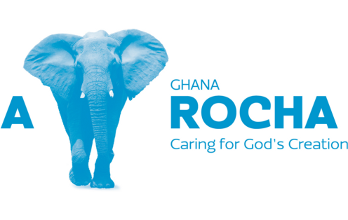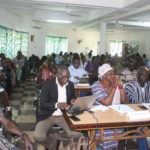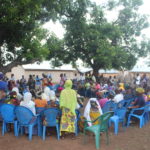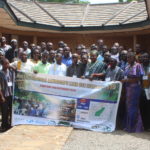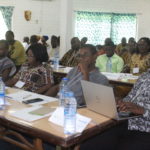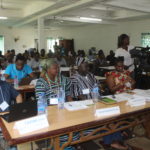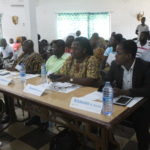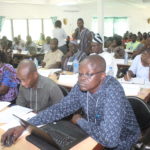Rethinking the Sustenance and Management of the Mole Landscape
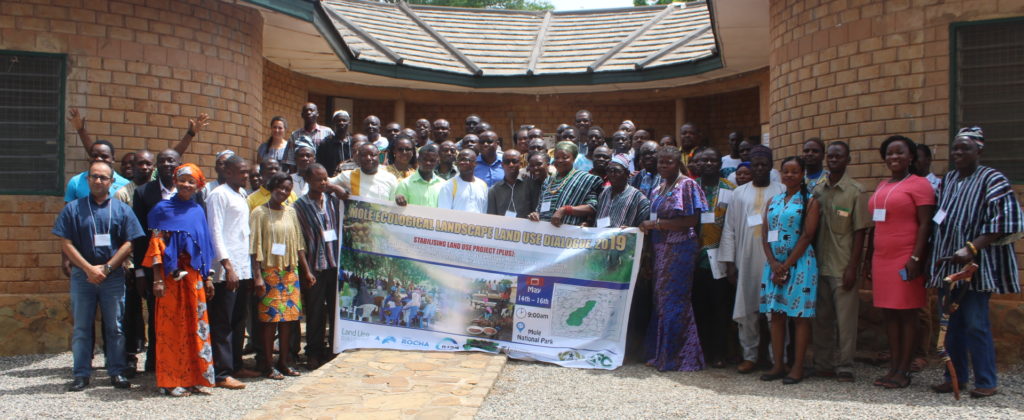 A Rocha Ghana in partnership with the International Union for Conservation of Nature (IUCN Ghana), and The Forest Dialogue (TFD) has realized a successful three-day Land Use Dialogue (LUD) in the Mole Ecological Landscape.
A Rocha Ghana in partnership with the International Union for Conservation of Nature (IUCN Ghana), and The Forest Dialogue (TFD) has realized a successful three-day Land Use Dialogue (LUD) in the Mole Ecological Landscape.
The Mole Ecological landscape is a unique and wealthy resource within the guinea savanna ecological zone which falls within three (3) political regions (Savannah, Upper West and North East Regions) and 5 districts (West Gonja, North Gonja, Sawla-Tuna-Kalba, Wa East and Mamprugu Moagduri Districts) of Ghana. Endowed with biodiversity and riparian ecosystems, it encompasses Ghana’s largest protected area (Mole National Park). Key features within the landscape also include, Community Resource Management Areas (CREMAs), cultural, hospitality centers, diverse flora and fauna dominated by Shea trees (Vitellaria paradoxa) and powered by an agrarian economy.
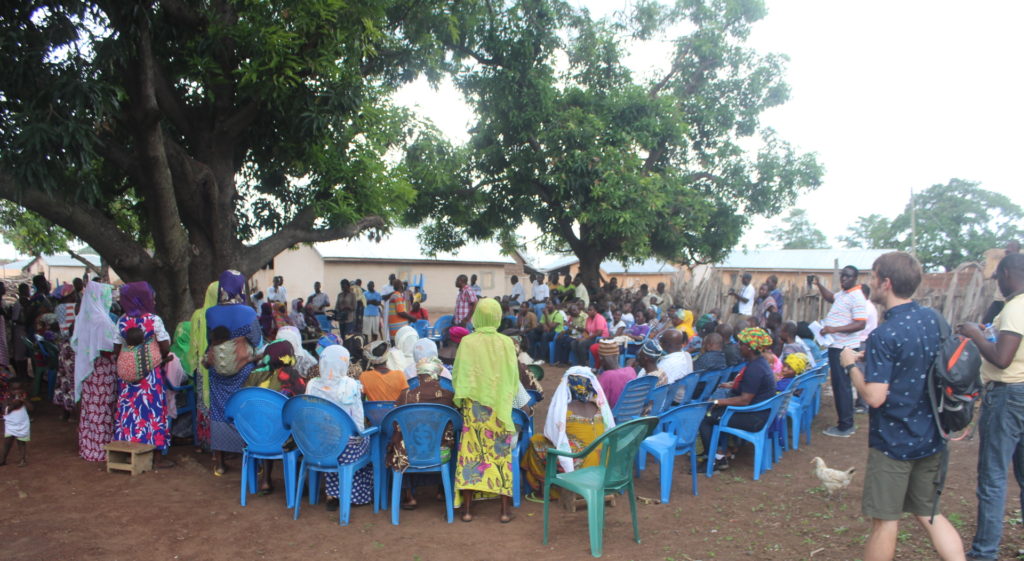 The event hosted by ARG in the Mole National Park, from May 14 through to May 16, 2019, was attended by nearly 100 participants from decentralized state agencies like the Environmental Protection Agency (EPA), Forestry Commission (FC), Water Resources Commission (WRC) and Resource Management Support Unit (RMSC) amongst others.
The event hosted by ARG in the Mole National Park, from May 14 through to May 16, 2019, was attended by nearly 100 participants from decentralized state agencies like the Environmental Protection Agency (EPA), Forestry Commission (FC), Water Resources Commission (WRC) and Resource Management Support Unit (RMSC) amongst others.
The dialogue also saw representation from the Savanna Regional Coordinating Council (S/RCC), District Chief Executive Officers, District Planning Officers, Charcoal Producers/ Buyers Association, Traditional Authorities, CSOs, Private sector and members of the Community Resource Management Areas (CREMAs).
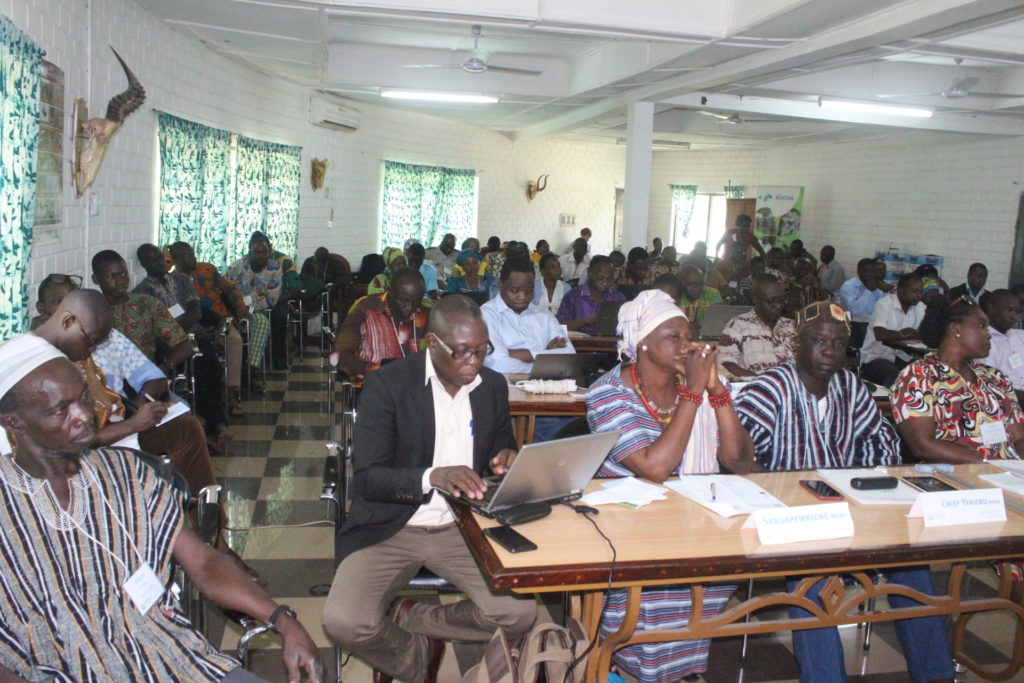 The program under the “Stabilizing Land Use Project (PLUS)” seeks to improve biodiversity conservation potential of agricultural and forest lands in four (4) project countries (Ghana, Tanzania, Uganda and DRC) by enhancing and expanding the role of Protected Areas and fostering integrated land use planning and developments. In Ghana, the project is being implemented in the Wassa Amenfi Landscape and the Mole Ecological Landscape
The program under the “Stabilizing Land Use Project (PLUS)” seeks to improve biodiversity conservation potential of agricultural and forest lands in four (4) project countries (Ghana, Tanzania, Uganda and DRC) by enhancing and expanding the role of Protected Areas and fostering integrated land use planning and developments. In Ghana, the project is being implemented in the Wassa Amenfi Landscape and the Mole Ecological Landscape
LUD
The Land Use Dialogue (LUD) is a multi-stakeholder engagement learning platform for gathering knowledge and leading processes for enabling responsible business, improved governance and inclusive development through a landscape approach. The main objective of the dialogue was to harness leadership (political, traditional and community) for effective natural resources management within the landscape as well as Improving cross-sectorial and institutional collaboration, clarify land tenure rights and improve the gender responsiveness, validate the Mole Ecological Landscape baseline study and also provide inputs into the design of a Landscape Management Strategy.
The 3-day dialogue was centered on integrating natural resources issues in the Regional and District Landscape Strategies and work towards contributing to ongoing processes around Reducing Emissions from Deforestation and Forest Degradation (REDD+) and Shea production at the landscape and national levels.
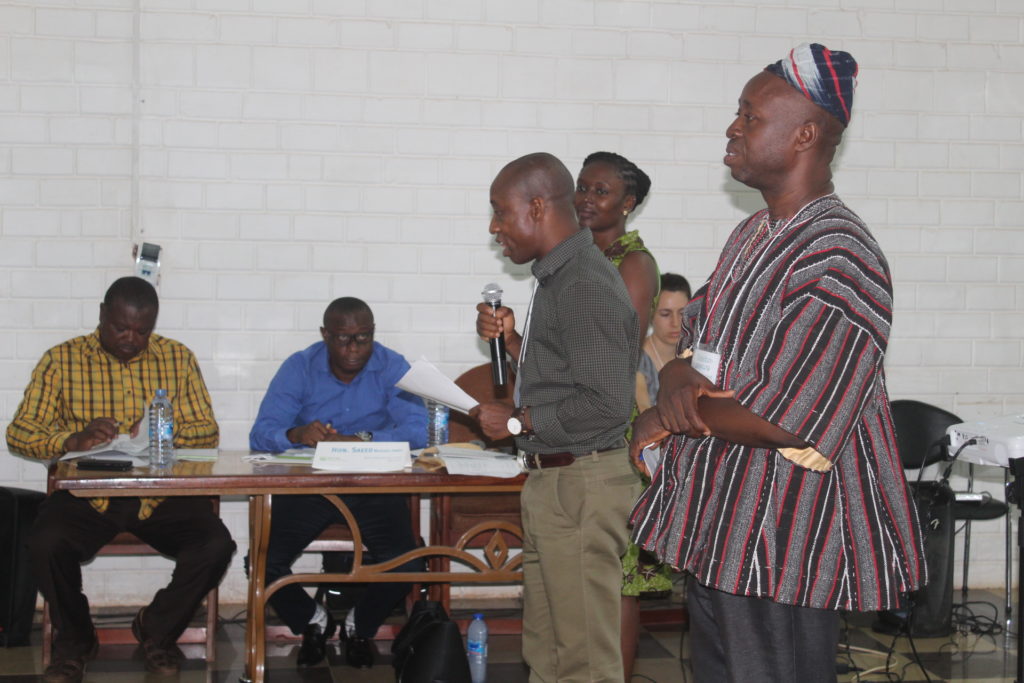 In an opening remark, National Director of A Rocha Ghana, Dr. Seth Ken Appiah-Kubi recounted how natural resources is crucial for human existence hence the need to plan and use the limited resources sustainably now and for future generations.
In an opening remark, National Director of A Rocha Ghana, Dr. Seth Ken Appiah-Kubi recounted how natural resources is crucial for human existence hence the need to plan and use the limited resources sustainably now and for future generations.
In his speech, the District Chief Executive for West Gonja District, Hon. Saeed Muhazu Jibril, brought to the fore the uniqueness of the Mole Ecological Zone—its ecosystem goods and services. He acknowledged the work of A Rocha, IUCN Ghana, forestry commission and other CSOs and their efforts to rescue the mole ecological zone.
He assured participants of the full support and commitment of the Savannah, North East and the Upper West Regional Coordinating Councils towards sustainable natural resources management in the landscape.
Activities undertaken during the three-day dialogue include presentation of baseline study findings; Landscape Visioning by stakeholder groups; safari in Mole National Park and Park Management Discussion; study visits to Murugu -Mognori CREMA; identification and Prioritization of Natural Resource Management issues and development of landscape management strategy.
Dialogue Outcome
After a successful dialogue, stakeholders came up with salient points that would aid in the formulation of a roadmap for sustainable management of the Mole Ecological Landscape.
Participants agreed to have a shared landscape vision as;
A resilient landscape supporting sustainable livelihoods and biodiversity.
This grand vision was reached after careful consideration of the natural resource base and the need to have an inspirational and concise statement that encompasses key elements of stakeholder’s aspirations.
The following are a few of the early steps critical for management of the landscape.
- Harness leadership (political, traditional and community) for effective natural resources management within the landscape
- Engage newly created Regional Coordinating Council and District Assemblies to fully integrate and provide support for community-based natural resource management.
- Improve cross-sectorial and institutional collaboration
- Engage duty bearers and resource users to apply sustainable best practices in resource exploitation and utilization
- Explore roles and ways to engage the private sector in sustainable landscape management, particularly in Shea sector;
- Support for Community Resource Management Areas (CREMAs);
- Foster community participation and ownership of forest conservation and management efforts, particularly under REDD+
- Clarification of land tenure rights and improving gender responsiveness.
